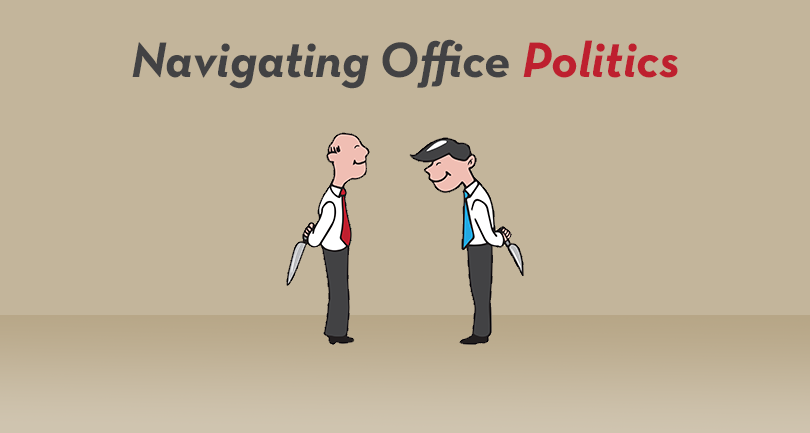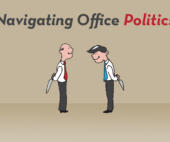Inside the complex matrix of the office, each individual seeks their own way to interact, to agree, to follow the rules, or to break them. Office politics, which can be like a two-sided knife, is the undercurrent, which accordingly understates this process. It is the impartial leader who emboldens the enterprising kind to lead but may equally condemn the others in the morass of gossip and negative talk. This article will focus on the technique of winning the game of office politics. It will highlight the positive as well as the negative side of it and give you strategies for standing out and winning.

The Duality of Power:
A: Unleashing Potential:

1. Building Alliances: Knowledgeable navigators recognize the importance of teamwork. By doing collaborative work with someone from different departments, individuals can create close-knit friends’ circles, where they feel like one voice speaking up for the work.
2. Advocacy and Influence: Concerning office politics, when practiced ethically, employees can do so, while creating a space where their suggestions or projects can be considered and accepted. Learning about the authority circles within the organization enables the empowerment of individuals to spot primary decision-makers and adopt the communication landscape that is related to their goals.
B: Navigating the Pitfalls:

1. The Information Game: Office politics can revolve around the intricate net with a lot of information. While being aware of developments is an important requirement, it is when you become stuck in the never-ending nuisance of unconfirmed information that you can be harmed. Worry more about the information specific for the role you have and make sure not to contribute to the buzz of negative comments.
2. Maintaining Integrity: The border between proactive positioning and manipulation can be minor. Be mindful of the fact that trust and the demonstration of good faith always come first and foremost. On the other hand, try to avoid interaction with the unethical people in your team, such as their backstabbing or spreading rumors about others.
The Price of Politics:
A recent study by Robert Half International found that a whopping 85% of workers believe office politics negatively affect their company culture [1]. This negativity can manifest in several ways:
- Stress: A 2023 survey by the American Psychological Association revealed that 67% of employees experience stress on the job, with office politics being a significant contributing factor [2].
- Disengagement: A Gallup study shows that only 34% of American workers are engaged in their jobs [3]. A toxic political environment can further decrease employee morale and productivity.

Beyond the Obvious:
Office politics can also impact the bottom line. A study by the University of Warwick found that companies with a highly politicized work environment experience a 20% decrease in productivity [4]. Here are some additional facts and figures to consider:
- Generational Differences: A study by the Pew Research Center suggests that younger generations may be more averse to office politics than their older counterparts [5]. 72% of Millennials reported witnessing unethical behavior at work, compared to 52% of Baby Boomers [5].
- Gender Bias: A Harvard Business Review study suggests that women may be perceived as less effective when they engage in office politics, compared to men [6]. This can hinder their career advancement opportunities.
The Global Landscape: Office politics manifests differently across cultures. Understanding these cultural nuances is crucial for navigating workplace dynamics in a globalized world.
Strategies for Success:
1. Become a Master Communicator: Communication, which includes ethical standing and being honest, we can say, will be the most impactful tool that we can use to win over office politics. You need to master the appropriate way of communicating, whether it be in a manner that is highly persuasive, clear, and concise.
2. Focus on Value Creation: The bottom line is that the uniqueness of your efforts and skills is self-evident. Try to be as correct as possible and to do work of high quality every time, and your organization will grow. Your circuit of perfection will sparkle against the overall confusion.
3. Develop Emotional Intelligence: It is important to be able to see your emotions clearly and those of others because politics plays an essential role in workplace relations. Self-awareness and empathy practice improve relationships and taking charge of situations in a complex way.

Office politics can be tricky, but communication, collaboration, and emotional intelligence pave the way for excellence. True leadership isn’t just navigating complexity, it’s inspiring others to do the same. Ready to elevate your team? Our Leadership Excellence training equips you with the skills to:
- Navigate complexity with confidence.
- Build strong relationships and foster collaboration.
- Communicate effectively and advocate for your ideas.
- Inspire excellence in yourself and those around you.



